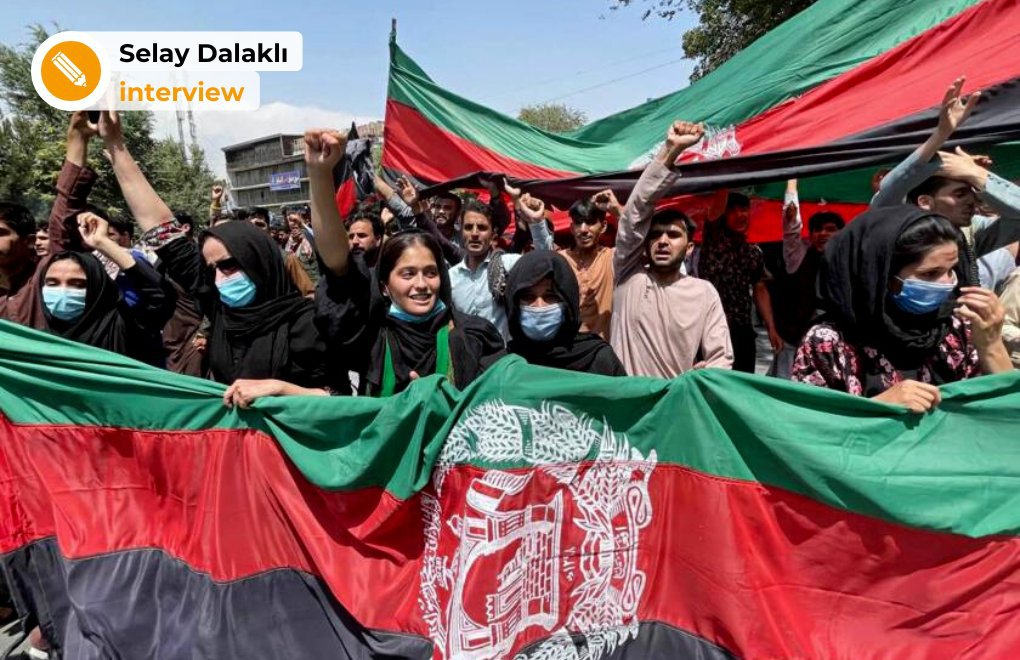* Photo: Pexels
Click to read the article in Turkish
2020 is finally over. Even this short sentence is enough to make most of us happy, albeit symbolically.
As we all know, 2020 was not an easy year. It was as if disaster and death had constantly been a part of our lives, be that the novel coronavirus (COVID-19) pandemic, which first emerged in China's Wuhan in December 2019 and gradually spread to the entire world in 2020, or the Azerbaijan-Armenia War, which erupted in the South Caucasus, right next to Turkey.
In fact, an opinion poll conducted in Turkey before June 1, when the numbers of COVID-19 fatalities and cases were not that high in the country, showed that when citizens were asked, "How hopeful are you for the post-COVID period," 62 percent of the participants said that "they were not hopeful" while 24 percent answered that "they were not sure."
But... Was 2020 really that bad? Can we really say that nothing pleasant or hope-inspiring happened at all?
Of course, we cannot. Then, let's take a brief look at the positive steps taken in the name of rights and freedoms and against discrimination in Turkey and the world in 2020 as well as the positive developments that unfolded in a seres of fields, ranging from nature to science.
LGBTI+ rights are human rights
Considering the oppression, violence and discrimination faced by LGBTI+ individuals for years, even centuries in different geographies of the world, any step taken in the name of their visibility and reinstatement of their long-usurped rights and freedoms is, without a doubt, worthy of being named among the hope-inspiring developments of 2020.
Then, let's first go somewhere a bit far away from Turkey.
Elected as the first openly lesbian mayor of Bogota, the capital city of Colombia, in the local elections in 2019, Claudia López announced that she and her partner Angélica Lozano got married. A few days later, on January 1, 2020, López officially took office as the Mayor of Bogota.

Two months later, the Federal Parliament of Germany banned "gay conversion therapy" for individuals younger than 18. The related "therapy" was done in a series of "methods" such as electroshock and hypnosis.
Another good news came from the Supreme Court of the United States (US) in June 2020. In a landmark judgement, the court has ruled that the federal law prohibiting discrimination at work shall be valid for gay and transgender individuals as well. This judgement is now considered the most important acquired right of the LGBTI+ community in the US since 2015, when same-sex marriages were allowed by the Supreme Court all across the country.
The struggle of women's and LGBTI+ rights activists also bore fruit in Sudan. Female genital mutilation was abolished, the right of travel was granted and flogging as a punishment for LGBTI+s was abolished in July 2020.
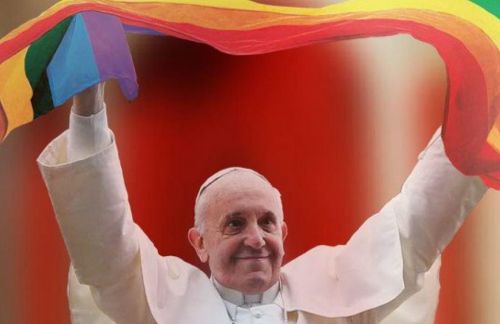
"God loves your children as they are." This sentence was uttered by Pope Francis, the head of the Catholic Church and sovereign of the Vatican City State. After he made these remarks in talks with the members of an LGBT association, he also said a month later: "Homosexual people have a right to be in a family. They are children of God and have a right to a family. Nobody should be thrown out or made miserable over it." This statement made him the first Pope to support same-sex marriage.
November 2020 also witnessed some good news coming from the US following the Presidential elections: Nominated by the Democrat Party, Taylor Small became the first openly transgender legislator of the Vermont House of Representatives; Sarah Mcbride became the first transgender senator of the US; and Mauree Turner became the first publicly non-binary member-elect of the Oklahoma House of Representatives.
In December, in a geography far away from the US, Nisha Rao started working at the Karachi Bar Association as the first trans lawyer of Pakistan.
'Not "we are here, too", but "we are here"'
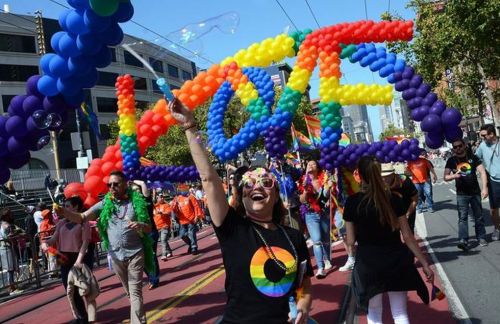
But what about Turkey? Did anything hope-inspiring happen in the name of LGBTI+s' rights, freedoms and visibility in Turkey?
Let's go back to January 2020 again and find the answer to our question in Avcılar, a small district at the outskirts of İstanbul:
Transgender woman activist Niler Albayrak started working as a driver at the main opposition Republican People's Party's (CHP) Avcılar District Municipality. Nearly two months later, Albayrak was also elected as a delegate to the CHP İstanbul Women's Branch.
Speaking to bianet on the occasion of International Day for the Elimination of Violence against Women, Niler Albayrak said, "While being a woman is hard in Turkey, being a trans woman is much harder" and added: "We, woman, are actually quite powerful, we just cannot realize this power."
As February is the "Football against Homophobia Month of Action", tournaments, events and conferences took place in 19 European countries. This year, the only event that took place in Turkey in this context was a football game between Sicilya Demir Spor and Sportif Lezbon.
According to the "Perceptions of Gender Roles and the Status of Women in Turkey" survey results released by the Kadir Has University Gender and Women's Studies Research Center in March, even though the rate of those who said, "Same-sex relationships are against our social norms" was still very high, there was an increase in the rate of those who agreed with the statement, "Gay, lesbian, bi and trans individuals should have equal rights."
On April 23 Children's Day in Turkey, LGBTI+s and rights defenders launched a social campaign and said, "LGBTI+ children do exist."
A few months later, in June 2020, the Turkey branch of Decathlon, an international sports equipment retailer based in France, was targeted by homophobic and transphobic messages over its social media posts about the "Pride Week." Refusing to step back from its inclusive message, the retailer shared another statement on social media. Referring to the Universal Declaration of Human Rights, Decathlon said: "We always proudly stand behind our attitude that embraces all colors and diversity and values people for who they are. We believe in the unifying power of sports."
This year's İstanbul LGBTI+ Pride Week was held online due to the pandemic. Speaking to bianet ahead of the Pride Week events, Ali Yıldırım from the 28th İstanbul LGBTI+ Pride Week Committee said:
"We celebrate our existence. We are here, too. Even that 'too' is too much. We say we exist, we say we are here. Crying this out loud at a certain time of the year is very, very important to celebrate this existence..."
Lastly, on behalf of all Norwegian students, the Peace Committee decided that the Student Peace Prize for 2021 was to be awarded to Middle East Technical University (METU) LGBTI+ Solidarity from Turkey.
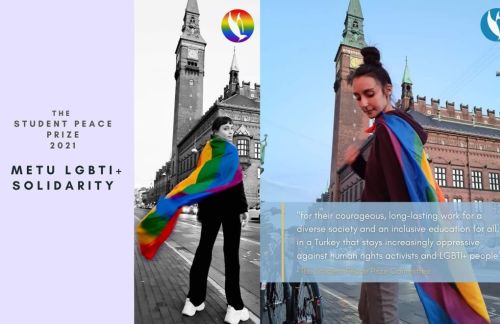
Women in Turkey, women in the world
2020 was, without a doubt, not an easy year for women, either. Especially the lockdown measures, unemployment and economic problems brought about by the pandemic deeply affected women's lives.
But 2020 still witnessed a series of positive developments for women and gender equality. Let's first look at the world:
In January, lawyer Francesca Di Giovanni was appointed by Pope Francis to serve as the Undersecretary for Multilateral Affairs in the Section for Relations with States in Vatican, becoming the first woman to hold a managerial position in that branch of the Roman Curia.
During the pandemic, one of the most frequently asked questions was "What Do Countries With The Best Coronavirus Responses Have In Common? Women Leaders?" The answer was women leaders.
One of these leaders was naturally Jacinda Adern, the Prime Minister of New Zealand. Elected for the second time in October 2020 after coming into office in 2017, Adern made a statement in June and, indicating that the need for sanitary peds was not a "luxury", she announced that the related needs of students would be met free of charge.
After the general elections in October, New Zealand now has one of the most inclusive parliaments of the world: While almost half of the MPs are women, the rate of LGBTI+s is 11 percent. The rate of representation of Māori people and Pacific islanders is higher than their rate among the general population. In the 4.9-million country, there are eight women in Adern's 20-member cabinet, which also has five Māori ministers.
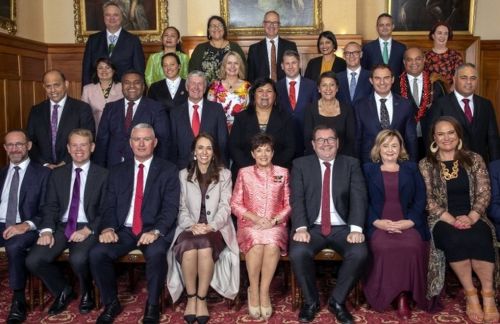
While it was in itself good news that Donald Trump was not reelected as the US President in November elections, Kamala Harris, the Vice Presidential nominee of President-elect of Democrats' Joe Biden, became the first woman, Black and Asian Vice President-elect of the country.
Another political figure who gave hope to millions of women around the world in terms of women's presence and visibility in politics was undoubtedly Svetlana Tikhanovskaya from Belarus. Running for Presidency against Alexander Lukashenko, "the last dictator of Europe", Tikhanovskaya had to flee the country after the election. But she is still a source of hope for women in her country as well as in the world.
In 2020, we also heard some good news from Spain and Denmark. As shared by the Amnesty International, Spain announced in March that it would discuss a bill that would define non-consensual sexual intercourse as rape and introduce a series of measures against sexual violence.
Denmark also came to an agreement to introduce a legal amendment that would define non-consensual sexual intercourse as rape.
In November, a series of reforms came into force in United Arab Emirates. Accordingly, the article of a law foreseeing mitigation of punishment for "honor killings" was repealed, the country allowed unmarried couples to live together and the law on alcohol consumption was loosened.
In a landmark decision, the Football Federation of Brazil announced that women's and men's national teams would be paid equally.
While 2020 was about to end, some good news came from Scotland and Argentina as well. In November 2020, Scotland became the first country in the world to make menstruation products such as tampons and sanitary pads free for those who could not afford them.
Alberto Fernández, the President of Argentina, had promised that if he came to power, he would submit a historic bill to the Congress to legalize abortion. He indeed did it in November and submitted the bill. And, finally, on December 30, abortion was legalized in the country.
'Me too' in Turkey: 'May you lose sleep'
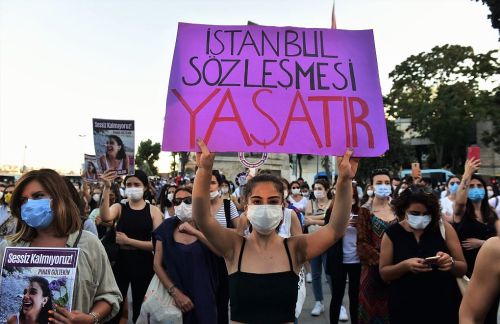
* Photo: Zeynep Kuray
As was always the case in previous years, 2020 was also full of struggle for women in Turkey: Struggle against discrimination and inequality, struggle against male violence, struggle against male state and judiciary, struggle against the pandemic and poverty...
Perhaps, at this point, we should put aside the chronological order more or less followed in this article for a while and say this at the very beginning:
For women in Turkey, 2020 was also the year when the "Council of Europe Convention on Preventing and Combating Violence against Women and Domestic Violence" or İstanbul Convention was opened to debate by Justice and Development Party (AKP) and pro-government circles.
But, despite the COVID-19 pandemic, thousands of women, with banners in their hands and with slogans in their lips, took to the streets across the country all year round, said, "İstanbul Convention keeps us alive" and showed that they did not have the slightest intention to back down from their acquired rights in any way whatsoever. Seen in this light, 2020 was in itself a hope-inspiring year for the women's rights movement.
That being said, before concluding this section with the slogan "May you lose sleep", let's remember some of the positive steps taken in Turkey in 2020 in terms of women's rights and gender equality:
"A woman passes through impossible terrain with her off-road vehicle," "A man successfully deals with persistent stains", "Her spouse welcomes the working woman to home with their baby in his arms..." That was with such slogans on billboards that the Advertisers' Association drew attention to sexism in language and ads in İstanbul, Ankara and İzmir.
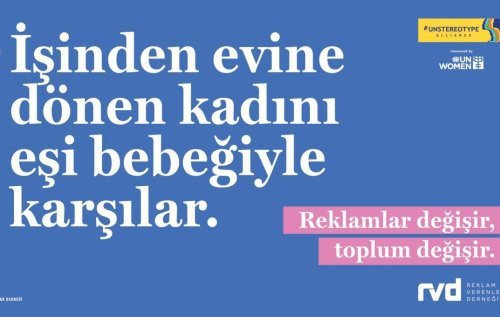
In Turkey, 2020 also witnessed several women "doing men's jobs": The workers of a gas station in Antalya were all women. They said, "There is nothing that women cannot do if they want to do it."
The İstanbul Metropolitan Municipality (İMM), where five women had been appointed to senior positions after the repeat elections, announced that the number of women drivers increased to 90 in İstanbul Subway and five seafarers started working in the İMM Sea Line Services.
In February, Galatasaray Sports Club established a "Women's Empowerment" working group to fight violence against women and signed the United Nations (UN) Global Impact, pledging that it would abide by the seven Women's Empowerment Principles (WEPs).
Last but not least, after nearly 20 women announced on social media that writer Hasan Ali Toptaş harassed and sexually assaulted them, women have started exposing the harassment, sexual assault and mobbing of other men in Turkey's literary world as well as from other professions.
Amid this "May you lose sleep" movement, or "me too" movement of Turkey, let's say it one more time from here:
"May you lose sleep, thinking, 'When will I be exposed?'"
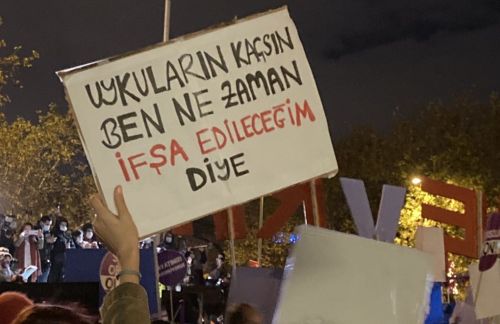
Towards a more inclusive, colorful world
After group of police brutally killed George Floyd, a Black man, the highest voice against racism and discrimination was raised from the US in 2020. "Black Lives Matter," said millions of people in different parts of the world and took to the streets to protest racism and police violence.
The anti-racism protests also saw the toppling of colonialists' statues in the US and the UK: The statue of Christopher Columbus was beheaded in Boston, those in St. Pauli in Minnesota and Virginia were broken down... During the protests in the UK, the statue of Edward Colston, who was involved in slave trade, was toppled in Bristol and thrown to the Avon river.
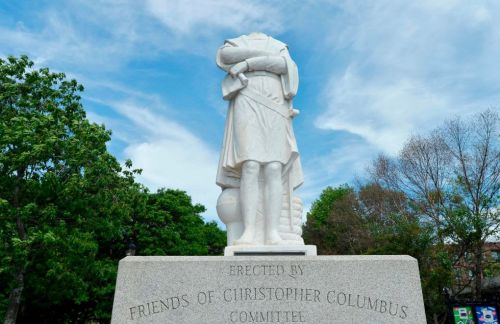
These symbolic reactions against especially structural racism and discrimination were among the hope-inspiring developments of 2020.
If we briefly come back to Turkey, the announcement that a tournament will be named after Garbis Zakaryan, who was known as the "Iron Fist" and was the first professional boxer of Turkey, can be considered one of the few steps taken in the name of inclusiveness in the country in 2020.
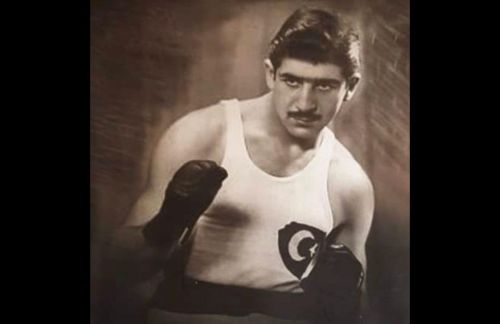
Moreover, the Royal Dutch Football Association (KNVB) stated that it would allocate a larger fund to struggle against discrimination and racism in football and announced a series of sanctions.
Not all news coming the from the US were bad in 2020:
As reported by the My Modern Met website, with the launch of the Crew-1 SpaceX Crew Dragon "Resilience" mission to the International Space Station (ISS) on November 15, 2020, Victor J. Glover Jr. became the first Black astronaut to embark on a long-term stay at the ISS.
A public-private collaboration between NASA and Boeing will also send Jeanette Epps to the ISS in 2021 as the 16th Black NASA astronaut in space. She will also be the first Black woman to reside on the ISS.
Lastly, the fashion industry also took a step in the direction of a more positive, inclusive and colorful world: In July, 18-year-old Elli Goldstein became the first fashion model with down syndrome on Vogue magazine.
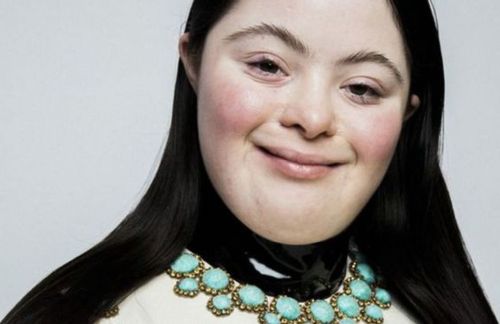
* Photo: David Pd Hyde / Gucci
'If I had a magic wand...'
Children... Even though they are not considered in the coronavirus risk group, their lives have also been fundamentally affected by the pandemic.
In April 2020, when coronavirus had just arrived in Turkey and distance education had just started in the country, a teacher from İstanbul asked her students, "If you had a magical power, what would you do?"
A primary school student answered as follows:
"If I had a magical power, I would save the elderly. I would find a treatment for coronavirus and save everyone. Then, I could reunite with my teacher and friends. I want to have fun and be at school now."
Another student said: "If I had a magic wand, my only wish would be this: I would like all children to be equal. I mean, I wish children were not made to fight in wars, they were not subjected to violence and not abducted. Also, I would like children to live the life they want freely..."
But... Can we, the adults of today, leave a beautiful, livable world to children? What kind of a nature will the next generations inherit from us?
What about natural life and ecology?
At the onset of the outbreak, when strict lockdown measures were in place in several countries, the economic and social life came to a standstill to such an extent that it was almost no longer surprising to see deers or peacocks on the streets of major metropolitan cities.
Though the climate crisis is still one of the biggest threats faced by all living beings and the planet, 2020 still witnessed some developments that could be considered positive for ecology and nature.
Let's remember some of these developments together:
In Ireland, a legislative proposal was submitted to ensure that all new cars and vans on the roads in 11 years would be electric vehicles. The country is also planning to ban new petrol and diesel vehicles from 2030.
Having started to use "climate crisis" instead of "climate change" and "global heating" instead of "global warming", the UK-based The Guardian newspaper announced in January 2020 that it would no longer accept advertisements from oil and gas companies.
In March, in California, a legislative proposal was submitted to the Senate to ban holding, breeding, importing or exporting whales or dolphins in captivity for display, performance or entertainment purposes.
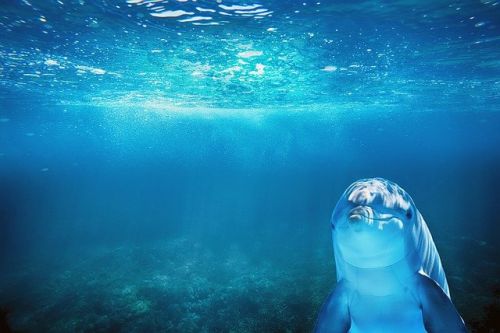
* Photo: Pixabay
As compiled by National Geographic, the changes that we had to do in our lifestyles had a positive impact on wildlife in 2020. According to the results of a study shared by the magazine, road traffic in the US decreased by as much as 73 percent in March and April and fatal collisions with wild animals such as deer, elk, bears, and mountain lions fell by up to 58 percent.
In June, China removed pangolins, which had allegedly played a role in the outbreak of the pandemic, from its traditional medicine list.
Another good news came from Australia in October: Named after Tasmania Island of Australia, Tasmanian devils returned to Australian mainland after 3,000 years. 11 Tasmanian devils were released to nature thanks to the efforts of a nature protection organization.
On the other side, Sweden closed its last coal-fired power plant in April 2020, thereby being the third European country to do this.
In a statement in September, Xi Jinping, the President of China, announced that they aimed to zero their carbon emissions by 2060.
Analyzing the impact of conservation activity since the United Nations (UN) Convention on Biological Diversity came into force in 1993, researchers at Newcastle University and conservation partnership BirdLife International found that up to 48 bird and mammal species had been saved from extinction by international conservation efforts.
The species include Asian crested Ibis, yellow-eared parrot, Hawaiian crow, spoon-billed sandpiper, red wolf, black-footed ferret and pygmy hog.
The fact that "cow hugging" (koe knuffelen) became a popular wellness trend in the Netherlands in 2020 was perhaps one of the most interesting news that gave us a huge smile amid all those hardships.
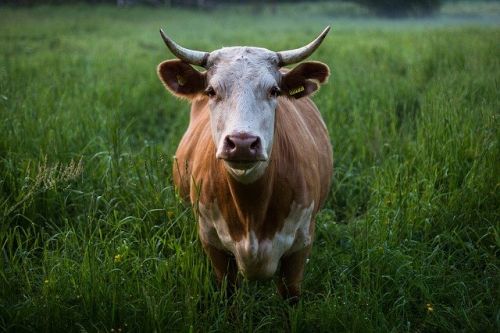
* Photo: Pixabay
A few happy news from Turkey
Let's face this: Turkey is a country where all types of mining activities and power plants, unplanned and, most of the time, unlawful settlements threaten nature, the struggle of local people and rights defenders for their living space is hindered and legal struggle does not usually give results.
So, it is really hard to find any positive developments or hope-inspiring news about nature in Turkey. Here are a few of them that we could find:
According to the Mid-Winter Water Bird Counts conducted in Turkey's Region of Lakes (in Burdur, Isparta and Antalya) in January, the number of water birds in the region increased by 26.34 percent in 2020.
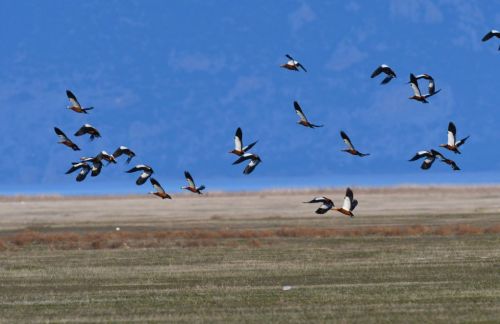
* Photo: Anadolu Agency (AA)
In March 2020, a Nature Library was opened in the research building of the Doğa (Nature) Schools in the district of Seferihisar in Turkey's Aegean province of İzmir. With its over 5,000 sources, the library now serves the researchers working on protection and culture of nature in Turkey.
According to the data collected by the air quality monitoring stations of the Ministry of Environment and Urbanization and municipalities, the aftermath of March witnessed a drop in air pollution in Turkey as the use of vehicles considerably decreased amid the COVID-19 restrictions.
Similarly, according to a report prepared by the Ecosphere Association in December, the concentration of PM10 and NOx (nitrogen oxide) in İstanbul, Ankara, İzmir, Bursa and Çanakkale provinces significantly decreased in April, May and June when compared to the same period last year.
Granted to young people under the age of 30 for their contributions to nature conservation around the world, the 2020 World Wide Fund for Nature (WWF) International President's Youth Award has been awarded to four people, including climate activist Atlas Sarrafoğlu from Turkey.
Atlas Sarrafoğlu, the youngest winner of the 2020 award, had pioneered the Fridays for Future movement in Turkey.
Fisherpeople in the Samsat district of Adıyaman province found a Euphrates softshell turtle, an endangered species:
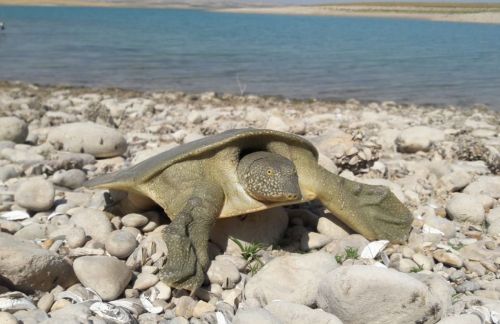
* Photo: AA
In August, Mehmet Masum Süer took the photographs of long-eared hedgehogs, a rare and endangered species, in Hevsel Gardens, a UNESCO World Heritage site, in Turkey's southeastern province of Diyarbakır:
Life in space, life on earth
When we hear the words 2020 and scientific breakthroughs in the same sentence, we naturally think of COVID-19 vaccine research immediately.
However, there were also other fields of science where hope-inspiring developments occurred in this difficult year. "There is still hope," do we want to say and, with this desire in mind, let's conclude this brief overview of 2020's positive developments with the good news from the world of science:
As reported by Business Insider, researchers at the Center for Enzyme Innovation in the United Kingdom (UK) and the National Renewable Energy Laboratory in Colorado in the US developed a "super-enzyme" that could break down plastic six times faster.
In a statement in September 2020, a group of scientists announced that they found phosphine gas in the atmosphere of Venus. While this gas is produced by microbes on earth and proves poisonous for humans, it is considered a possible sign of life on the planet.
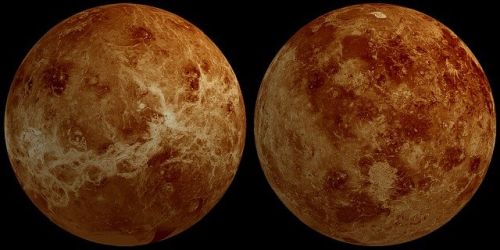
* Photo: Pixabay
A few months prior to this announcement, a scientific article published on Nature Astronomy journal showed that there were reservoirs of salty water in a dwarf planet called "Ceres" between Mars and Jupiter.
As NASA gave similar news for Mars in this period, it was estimated that there might be microbic life in both Ceres and Mars.
In October 2020, NASA also announced that "the moon was sprinkled with patches of hidden frozen water."
In June, an international team lead by a group of scientists from the Hong Kong University of Science and Technology developed "the world's first 3D artificial eye with capabilities better than existing bionic eyes and in some cases, even exceed those of the human eyes, bringing vision to humanoid robots and new hope to patients with visual impairment."
Lastly, in July, scientists in Australia reported that the preclinical laboratory studies of a new cancer vaccine had shown promising signs.
While the vaccine was developed by researchers at Australia's Translational Research Institute, in collaboration with The University of Queensland, Lead Researcher Assoc. Prof. Kristen Radford said, "We are hoping this vaccine could be used to treat blood cancers... plus solid malignancies including breast, lung, renal, ovarian, and pancreatic cancers, and glioblastoma."
***
Hoping to give happier news in a world where there is less war, disease, hunger and death in 2021... Have a good year. (SD)
* The title of the article is inspired by world-renowned late physicist Stephen Hawking, who once said, "Where there's life, there's hope".




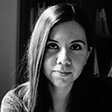
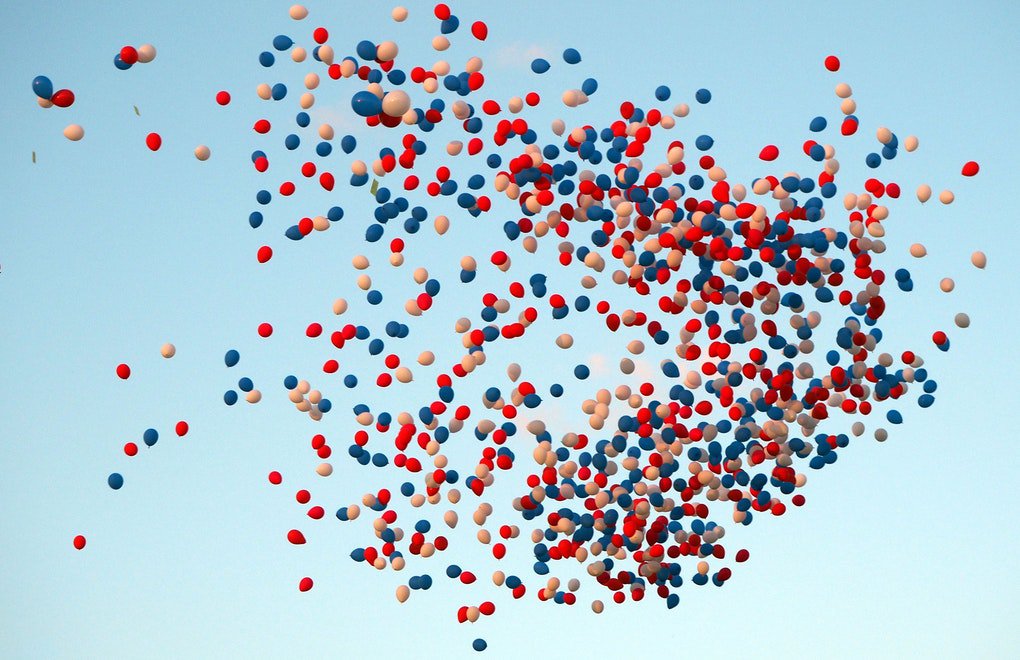
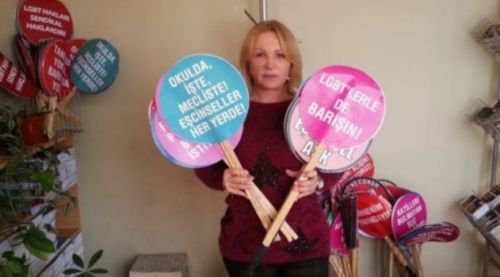
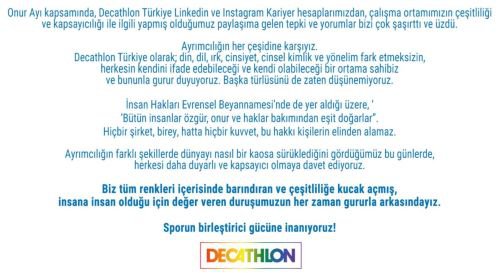
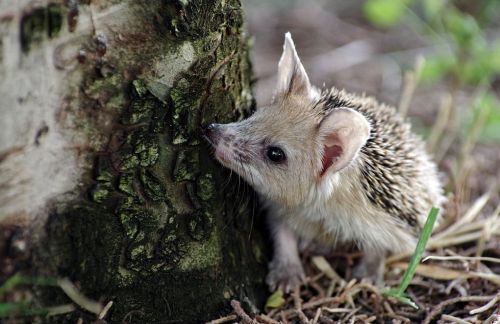
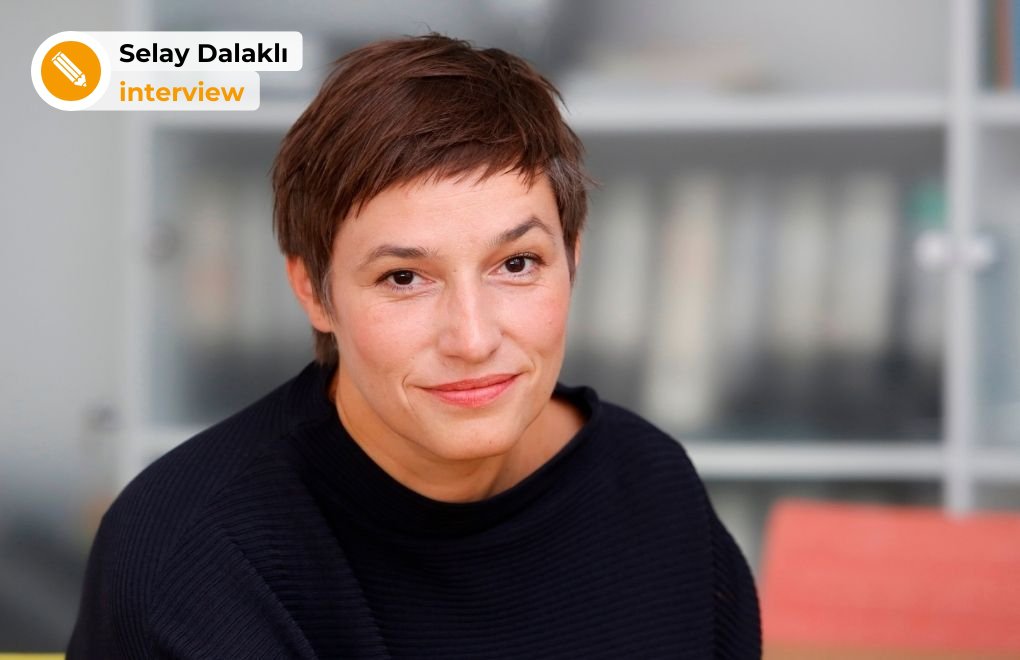
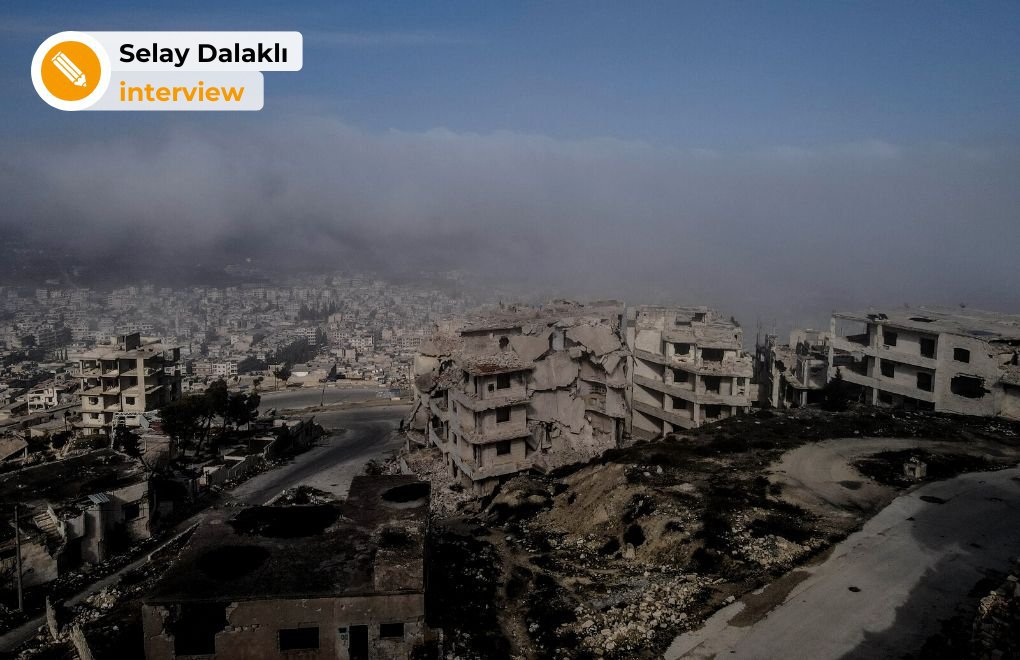

.jpg)
